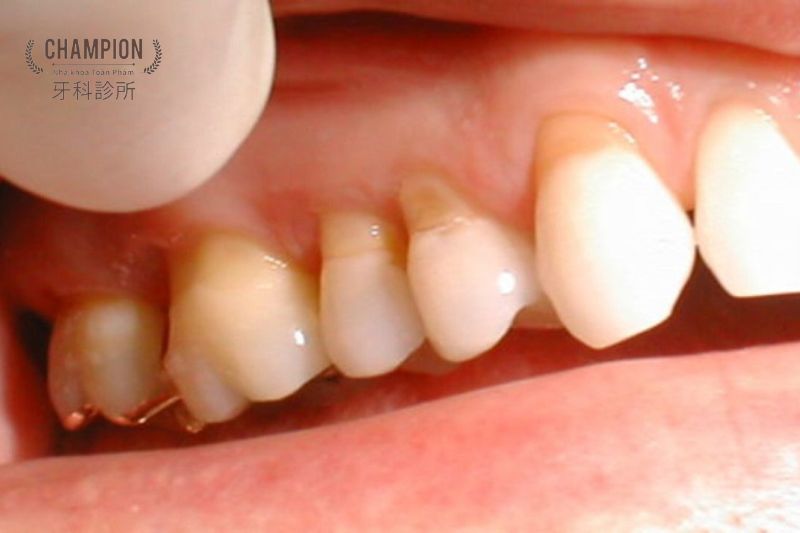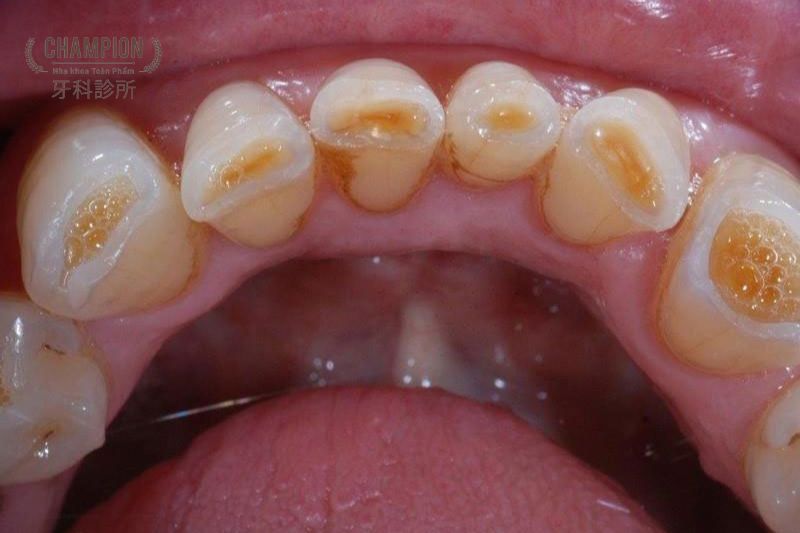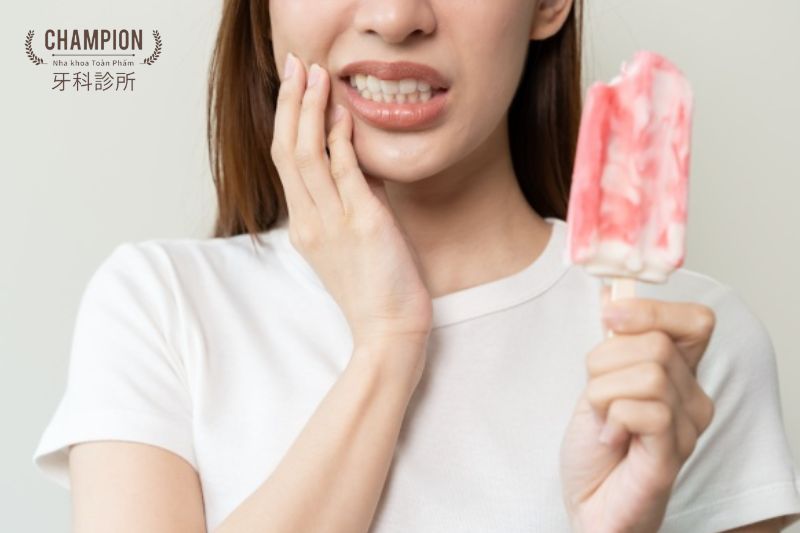Diagnosing dental enamel erosion is a crucial step in maintaining oral health. Enamel erosion not only affects the aesthetic appearance but can also lead to more serious dental issues if not timely diagnosed and treated. Join Champion Dental to learn more about this issue in detail.
Why is Early Diagnosis of Dental Enamel Erosion Necessary?
Early diagnosis of dental enamel erosion is not only crucial for protecting oral health but also helps in preventing potential general health issues. Here are some reasons why early detection of enamel erosion is essential:
Preventing Worse Conditions
Enamel erosion is a progressive condition, and early diagnosis can prevent it from worsening. In cases of mild enamel loss, preventive measures and lifestyle adjustments can control the condition without the need for extensive dental interventions.
Reducing the Risk of Cavities and Gum Disease
Enamel acts as a protective barrier for teeth against bacteria and acids. When enamel wears away, teeth become more susceptible to decay and infection. Early detection of enamel erosion reduces the risk of developing cavities and gum issues, thereby protecting overall oral health.
Protecting Chewing Function
Enamel erosion affects not only aesthetics but also causes pain and sensitivity, reducing the ability to chew and impacting the quality of life. Early diagnosis helps protect chewing function by allowing timely interventions.
Avoiding General Health Issues
Oral health affects overall health. Studies have shown a link between gum disease and other health problems like heart disease and diabetes. Therefore, early diagnosis of enamel erosion not only protects teeth but also helps maintain general health.
Saving Time and Costs
Treating enamel erosion in its early stages is usually simpler and less costly compared to addressing complex issues arising from uncontrolled progression. Early diagnosis and intervention save time and costs for future treatments.

Most Accurate Methods for Diagnosing Dental Enamel Erosion
Below are some common diagnostic methods that dentists often use to determine the condition of dental enamel erosion:
Clinical Examination
This is the first and most basic step in the diagnostic process. During a clinical examination, the dentist will thoroughly check your teeth and gums for signs of enamel erosion, such as changes in color, shape, and sensitivity to hot, cold, or sweet foods.
X-ray Imaging
Dental X-rays are a useful tool for dentists to examine the internal structure of teeth and determine the extent of enamel erosion. This method can help detect damages that are not visible through regular clinical examinations.
Medical History Review
The dentist will ask about your lifestyle habits, diet, and oral health issues to identify the causes of enamel erosion.

Effective Treatment Methods for Dental Enamel Erosion
Enamel erosion not only affects aesthetics but can also lead to serious oral health problems. There are now many effective treatment methods to address this condition. Below are some common treatments for dental enamel erosion:
Fluoride Treatment
Fluoride treatment is the first and most basic method to restore tooth enamel. Fluoride helps strengthen the enamel's resistance, thereby reducing the risk of erosion. Dentists can apply fluoride in the form of gel, foam, or varnish directly on the teeth.
Veneers
Veneers are thin shells made of porcelain or composite that are bonded to the front of the teeth. This method not only improves the appearance of the teeth but also protects the surface from further enamel erosion.
Dental Fillings
If tooth erosion has created cavities, the dentist can use dental fillings to restore the tooth structure. The filling materials can be amalgam, composite, or porcelain, depending on the location and extent of the erosion.
Dental Crowns
For severe cases of enamel erosion, dental crowns may be the best solution. Crowns not only restore the shape and function of the teeth but also provide a durable protective layer against future enamel erosion.

>> See more: What is a Cracked Tooth? Causes, Symptoms, and Treatment
Oral Care Instructions After Treating Dental Enamel Erosion
After undergoing treatment for enamel erosion, proper oral care is crucial to maintain the treatment results and prevent the condition from recurring. Here are detailed instructions for oral care after treating enamel erosion:
Maintain Regular Toothbrushing
Use a soft-bristled toothbrush to gently brush your teeth at least twice a day, especially after meals and before bedtime.
Use Fluoride Toothpaste
Use toothpaste containing fluoride to help strengthen and protect the enamel.
Limit Acidic Foods and Drinks
Reduce consumption of high-acid foods and drinks like soda, fruit juices, coffee, and wine.
Use a Straw for Acidic Beverages
Use a straw when drinking acidic beverages to minimize direct contact with the teeth.
Use Fluoride Mouthwash
Rinse daily with a fluoride-containing mouthwash to enhance enamel protection and reduce the risk of cavities.
Healthy Diet
Increase consumption of calcium and phosphorus-rich foods like milk, cheese, sunflower seeds, and fish, as they help remineralize and protect the enamel.
Drink Plenty of Water
Drink lots of water, especially plain water, to keep the mouth moist and reduce the risk of enamel erosion.
Avoid Smoking and Tobacco Use
Smoking and using tobacco products can increase the risk of enamel erosion and other oral health issues.
Avoid Grinding Teeth and Clenching
If you have a habit of grinding your teeth or clenching, discuss with your dentist about using a mouthguard to protect your teeth.
Regular Dental Check-ups
Ensure regular dental visits for check-ups and cleanings. The dentist can also assess the recovery of the enamel and provide personalized oral care advice.
Conclusion
Enamel erosion can be a sign of other oral health issues, so it's important to visit the dentist regularly for check-ups and timely treatment. If you are experiencing this condition, visit Champion Dental for a consultation and treatment.
Nha khoa Champion
Hotline: 02854112297
Địa chỉ: 172, Đường Nguyễn Lương Bằng, Phường Tân Phú, Quận 7, TP.Hồ Chí Minh
Email: championvn7@gmail.com
Fanpage: Champion Dental Clinic 牙科診所
 Champion Dental Clinic
Champion Dental Clinic



